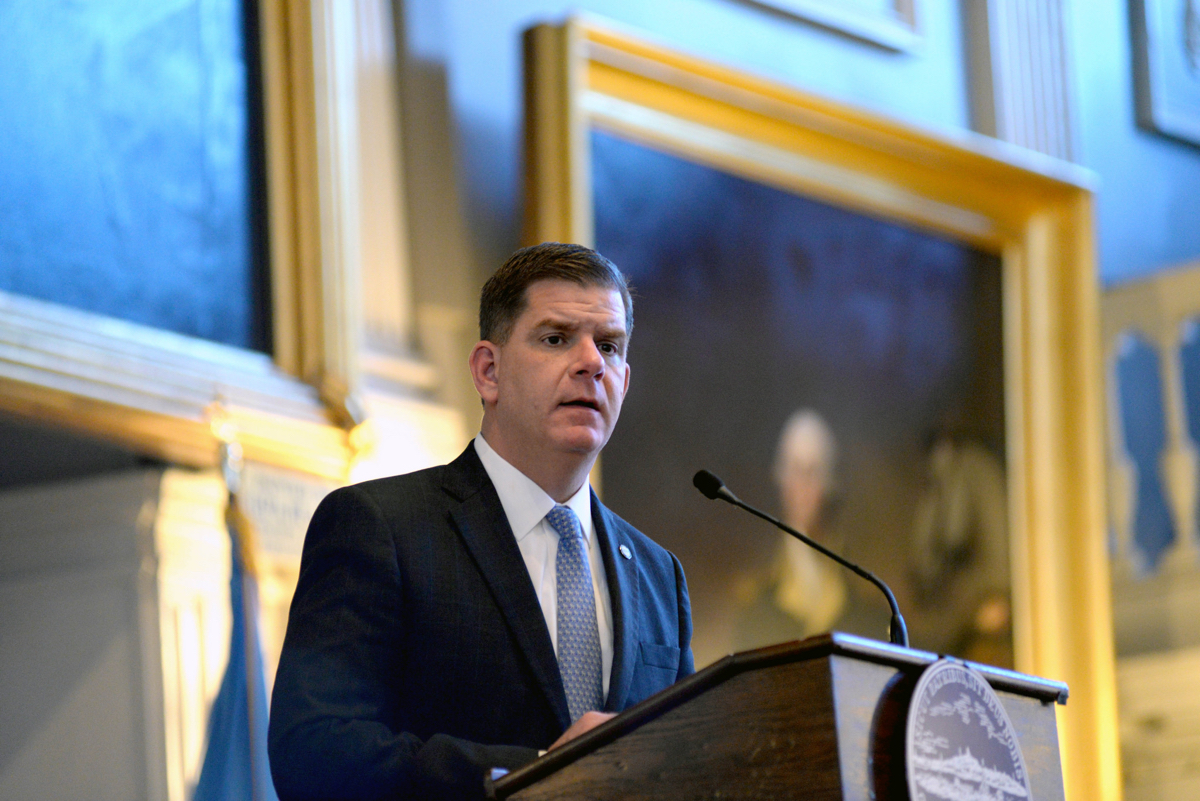Mayor Walsh Says GOP Health Plan Would Put Millions in Jeopardy

Photo via Mayor’s Office/Don Harney
On Wednesday, the Congressional Budget Office (CBO) scored the revised American Health Care Act (AHCA), the GOP’s proposed replacement for the Affordable Care Act (ACA). By CBO estimates, under the plan 14 million more Americans would become uninsured next year, and that number would increase to 23 million by 2026.
Mayor Marty Walsh, chair of the U.S. Conference of Mayors’ Children, Health, and Human Services Committee, reacted strongly to the CBO score in a statement.
“The American Health Care Act of 2017 would put millions of people in our cities in jeopardy,” Walsh says. “The bill throws a one-two punch—stripping 23 million people of their insurance and applying skyrocketing premiums to others, particularly those who can least afford it.”
Walsh has good reason for concern. Even the Commonwealth, long lauded for its exemplary insurance rates, would not be immune to the AHCA. If the House-passed version of the bill were signed into law, roughly 450,000 Massachusetts residents could lose their health insurance by 2022, according to a new report from the Urban Institute.
The AHCA is unlikely to clear the Senate without significant edits. But if it did, the report claims Massachusetts would have to scrounge up $1.1 billion in 2022 just to keep Medicaid coverage at current levels. Failing that, 355,000 of the 1.9 million people covered by MassHealth, the state’s Medicaid program, would lose health insurance.
The report also says the state would lose approximately $1.4 billion in federal Medicaid funding in 2022, as part of a CBO-estimated $119 billion reduction in the federal deficit over the next decade. ConnectorCare, a tax credit program that runs on a mixture of state and federal money, would also lose federal funding under the AHCA, causing an additional 90,000 people in Massachusetts to lose health insurance.
Meanwhile, the state’s employers would spend $296 million more on health insurance in 2022 than they do now, and healthcare spending among non-elderly residents would rise by $253 million.
The Boston Business Journal first reported on the Urban Institute study, which was commissioned by the Massachusetts Coalition for Coverage and Care, a joint initiative of Blue Cross Blue Shield, Health Care for All, and other healthcare advocates.
“The study’s results detail a very bleak set of outcomes, all of which have serious repercussions,” Stephen Rosenfeld, interim executive director of Health Care For All, says in a statement. “We can calculate the impact in terms of dollars and statistics. However, behind each number there is a story of a neighbor or a family who will struggle to access the care they need.”


